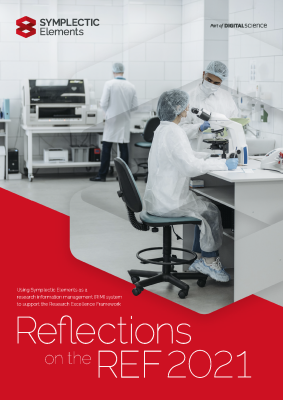With further decisions on the REF 2028 expected to be published by the UK funding bodies in December of this year, we know many clients are eager to hear about our planned next steps in supporting REF 2028.
At Symplectic, we are committed to adapting and evolving our solutions to align with the changing landscape of the Research Excellence Framework (REF). Based upon the initial decisions, outlined in back in June, the REF for 2028 is expected to introduce significant alterations – particularly around the decoupling of researchers and outputs. This shift in emphasis will necessitate a review and retooling of some of the functionality within Symplectic Elements to continue to effectively support the new REF process.
The funding bodies are currently in the process of defining the shape of REF 2028, with further decisions expected to be published in December 2023. Once this additional guidance is made available, we plan to reconvene our REF steering group during the first half of 2024.
In order to provide the best possible support, we are calling for volunteers to collaborate with us in our REF steering group. We are eager to work with institutions of varying sizes and across a range of disciplines to ensure that Symplectic Elements fulfils and exceeds requirements for all members of the research community. We will continue to maintain a close and collaborative relationship with Research England, ensuring that Symplectic Elements remains in sync with the evolving requirements of REF 2028.
We are committed to providing our users with the tools and support necessary to navigate the changing landscape of research assessment, and we look forward to collaborating with our community to make this happen.
For further inquiries or to express your interest in joining our REF steering group, please sign up using the form here.
Learn more about how we supported the REF 2021 by downloading our REF whitepaper.
